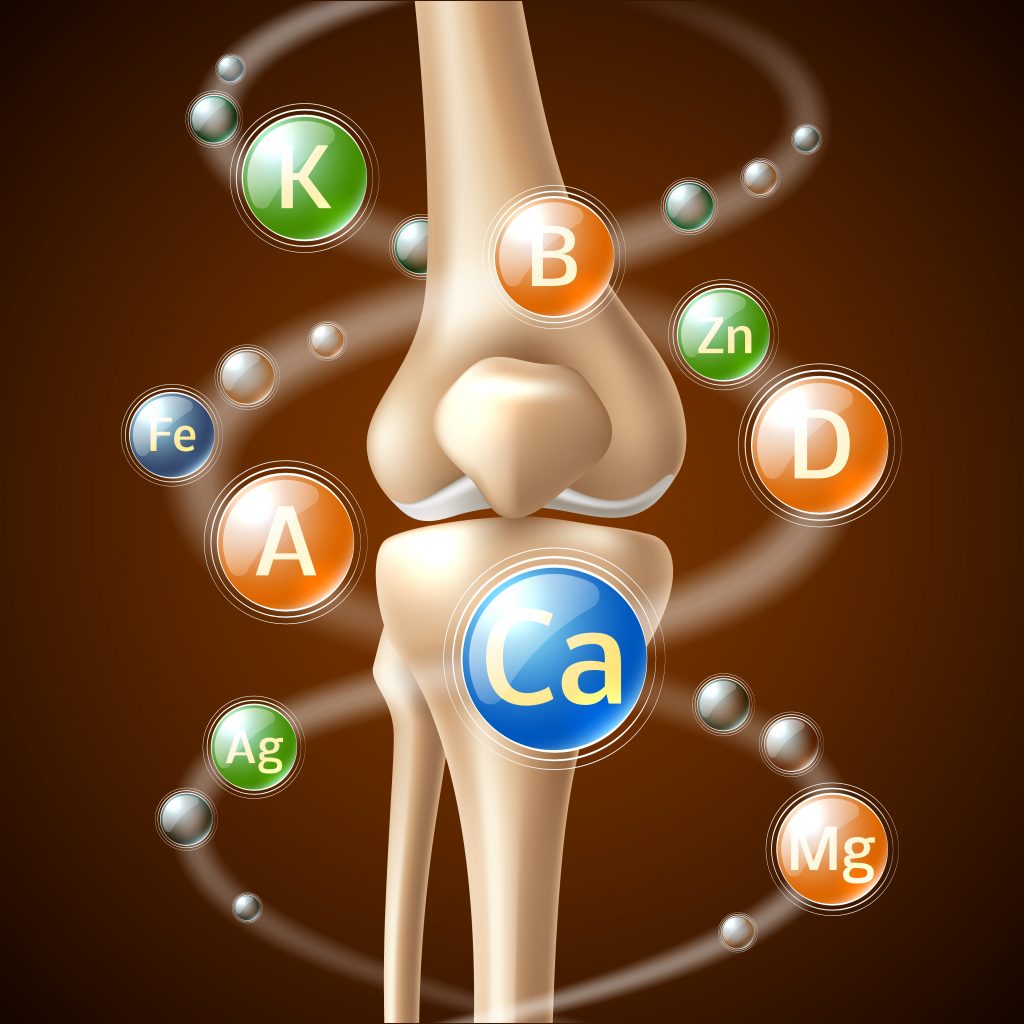Introduction:
When we think about nutrition and bone health, calcium and vitamin D often take center stage. While these nutrients are undeniably vital for building and maintaining strong bones, they are just part of a much larger and more complex picture. Optimal bone health relies on a symphony of vitamins, minerals, and overall dietary patterns. At the London Osteoporosis Clinic, we emphasize a holistic approach to bone health, recognizing that a well-rounded nutritional intake is essential for preventing bone loss and promoting bone strength. This article will delve into the key nutrients beyond calcium and vitamin D that play critical roles in keeping your bones healthy and resilient.

The Unsung Heroes: Key Nutrients for Bone Health
While calcium provides the building blocks for bones and vitamin D helps your body absorb calcium, several other nutrients are equally important for bone formation, density, and overall skeletal health.
1. Magnesium: The Bone Mineralizer
Magnesium plays a crucial role in bone formation and influences the activity of osteoblasts (bone-building cells) and osteoclasts (bone-resorbing cells). It also helps in the metabolism of vitamin D.
- Food Sources: Leafy green vegetables, nuts (especially almonds and cashews), seeds (pumpkin and chia), legumes, and whole grains.
2. Phosphorus: Calcium’s Partner
Phosphorus is another essential mineral that works closely with calcium to build and maintain strong bones and teeth. Maintaining a proper calcium-to-phosphorus ratio is important for bone health.
- Food Sources: Dairy products, meat, poultry, fish, eggs, legumes, and nuts.
3. Vitamin K: The Bone Builder’s Helper
Vitamin K, particularly vitamin K2, is crucial for bone metabolism. It helps direct calcium to the bones and prevents its deposition in soft tissues and arteries.
- Food Sources: Natto (fermented soybeans, a rich source of K2), leafy green vegetables (for vitamin K1, which can be converted to K2 in small amounts), and some animal products.
4. Zinc and Copper: Trace Minerals with Big Impact
These trace minerals are involved in the enzymatic processes necessary for bone growth and remodeling. Zinc supports osteoblast function, while copper is important for collagen formation, a key component of bone matrix.
- Food Sources:
- Zinc: Oysters, red meat, poultry, beans, nuts, and whole grains.
- Copper: Liver, shellfish, nuts, seeds, chocolate, and legumes.
5. Vitamin C: Collagen Production Powerhouse
Vitamin C is essential for the synthesis of collagen, the protein matrix that provides the structural framework for bones. It also acts as an antioxidant, protecting bone cells from damage.
- Food Sources: Citrus fruits, berries, bell peppers, broccoli, and tomatoes.
6. B Vitamins: Supporting Bone Metabolism
Certain B vitamins, such as vitamin B12 and folic acid, are involved in bone cell function and may play a role in preventing bone loss. High levels of homocysteine, a byproduct of folate and B12 metabolism, have been linked to an increased risk of fractures.
- Food Sources:
- Vitamin B12: Meat, poultry, fish, eggs, and dairy products.
- Folic Acid (Folate): Leafy green vegetables, legumes, citrus fruits, and fortified grains.
Beyond Individual Nutrients: The Importance of Dietary Patterns
While focusing on individual nutrients is important, the overall dietary pattern plays a significant role in nutrition and bone health.
- A Balanced Diet: Consuming a variety of nutrient-rich foods ensures that you are getting all the necessary vitamins and minerals for optimal bone health.
- Adequate Protein Intake: Protein is crucial for building and repairing tissues, including bone. Ensure you are getting enough lean protein sources.
- Limit Processed Foods and Sugary Drinks: These can contribute to inflammation and nutrient deficiencies that negatively impact bone health.
- Consider the Acid-Alkaline Balance: Some research suggests that a diet rich in fruits and vegetables (alkaline-promoting) may be beneficial for bone health by counteracting the acid load from other foods.
Conclusion: Nourishing Your Bones for Lifelong Strength
Achieving and maintaining strong bones is a lifelong endeavor that goes beyond simply focusing on calcium and vitamin D. A comprehensive approach to nutrition and bone health involves ensuring adequate intake of magnesium, phosphorus, vitamin K, zinc, copper, vitamin C, and B vitamins, along with adopting a balanced and healthy dietary pattern. By understanding the crucial roles these nutrients play, you can make informed food choices that contribute to a robust and resilient skeletal system for years to come. If you have concerns about your bone health or your nutritional intake, the experts at the London Osteoporosis Clinic can provide personalized advice and guidance.
Contact the London Osteoporosis Clinic today for a comprehensive bone health assessment and personalized nutritional recommendations.
Clinic Information: Phone: +44 (0)20 7193 7867
Email: [email protected]
Address: London Osteoporosis Clinic, HCA the Shard, 32 St Thomas Street, London SE1 9BS
Online consultations are available. Contact us to learn more.


